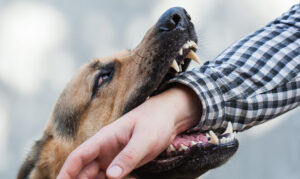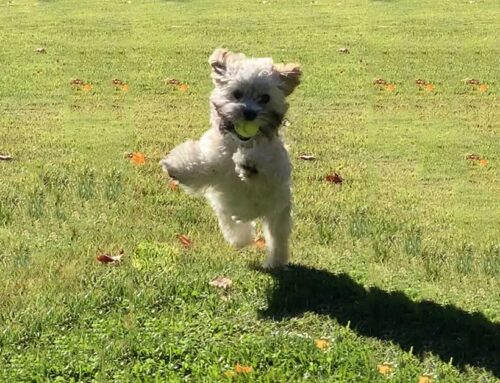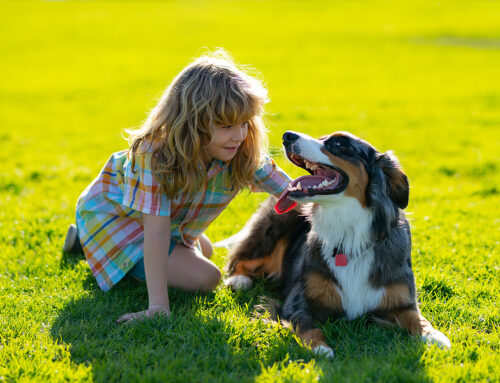The most recent addition to the First Family, a shelter rescue German shepherd named Major, has been in the news recently regarding two publicized biting incidents that took place on the White House grounds in March. One significant point that the media buzz surrounding the Major Biden dog bites has revealed is that, on the whole, the public understanding of and perspective about dog bite incidents is inaccurate – in ways that can be dangerous for people interacting with any dog. The timely recent occurrence of Dog Bite Prevention Week on April 11-17 provides an excellent opportunity to take a closer look at how we understand what happens when a dog bite incident occurs.

New Jersey’s laws regarding dog bite liability hold the dog’s owner strictly liable for any injuries their dog causes as long as the bite victim was in a public place or lawfully permitted to be on private property when bitten, regardless of whether the owner took reasonable measures to prevent the dog from causing harm. While the dog owner’s attorney may argue comparative negligence if the bite victim provoked the dog in some way, New Jersey law does not require the dog to have a history of biting or the owner to have prior knowledge of the dog’s “viciousness” in order for the owner to be held liable.
While this legal position on liability was intended to protect bite victims, it also (perhaps inadvertently) accurately illustrates a truth about dog bites in NJ: the vast majority of the time, they are not caused by “viciousness” on the part of the dog. As celebrity dog trainer Cesar Millan succinctly put it in an interview with Politico regarding the Biden dog bites, “It’s not the dog.” In an overwhelming percentage of cases, dogs don’t bite because they’re angry, or ill-tempered, or bored – they bite because they’re afraid. If a dog doesn’t feel secure in his environment, or doesn’t feel protected by his owner, or a person approaches him in a way that feels threatening, the dog is more likely to bite.
Even then, though, biting is generally not a dog’s first recourse. Dogs will communicate their discomfort in a number of ways. They will try to move away from a person who makes them feel frightened. They will break eye contact by sniffing at the ground or scratching themselves. Their bodies will be tense and their posture restless. If the dog is prevented from moving away or the “threat” comes closer, the dog may display warning behaviors such as barking, growling, or yawning to show his teeth. These are all ways for the dog to communicate, “Go away, don’t touch me, I’m afraid of you!” The dog’s owner should remain alert for these signals and remove their dog from a situation that is causing him distress, long before that distress can escalate to defensive aggression. At the same time, anyone trying to interact with the dog should be mindful of the dog’s body language and communication signals, and not try to force petting or other interaction with a dog that seems uncomfortable or hesitant. It’s better to allow the dog to come to you for attention, and to allow the dog to say “no” when it feels insecure. This is why the interaction between children and dogs should always be supervised, because a child (especially a younger child) does not know how to read a dog’s body language or understand when the dog is saying “no.”
In the case of the Biden dog bites, Major’s biting behavior seems very likely to be due to his feeling insecure. He has recently moved into a new home full of strange new people coming and going constantly, many of whom are displaying strong nonverbal signals of stress. After the first bite, Major was sent back to the family home in Delaware for training, which was likely ineffective as it did not address the stressors of his new living space. What Major most likely needs is training at the White House, involving the Bidens and their primary dog handlers, to help him learn to feel safe in this strange, busy, stressful place. Until that happens, staffers would be wise to allow Major a wide berth when passing by.
If you are the victim of a dog bite in NJ, seek any necessary medical care right away, and ensure that any wounds or bruising caused by the bite incident are documented properly. Obtain the contact and insurance information of the dog’s owner, as well as a copy of the dog’s vaccination records if possible, and the contact details of any potential witnesses to the bite incident. Consult with an attorney as promptly as your injuries allow, and do not sign anything presented to you by the dog owner or anyone else without your lawyer’s advice.
Contact MyNJInjuryLawyer
If you or a loved one suffered a dog bite in NJ, you should contact an attorney familiar with handling these claims. An experienced NJ Injury Lawyer will know how to pursue the claim, obtain insurance records, medical records, videos, photographs, experts, locate witnesses and contact the insurance company so you can make a claim for your injuries.
My NJ Injury Lawyer Howard P. Lesnik, Esq. offers complimentary strategy sessions to address any issue or questions you may have for your injury claim in NJ.
Please contact NJ Injury Lawyer Howard Lesnik, Esq., immediately if you were involved in an accident. I personally handle NJ personal injury cases on a regular basis. Please contact me now by email, by phoning 908.264.7701, or by completing the form to the right to schedule your complimentary 30-minute strategy session.







